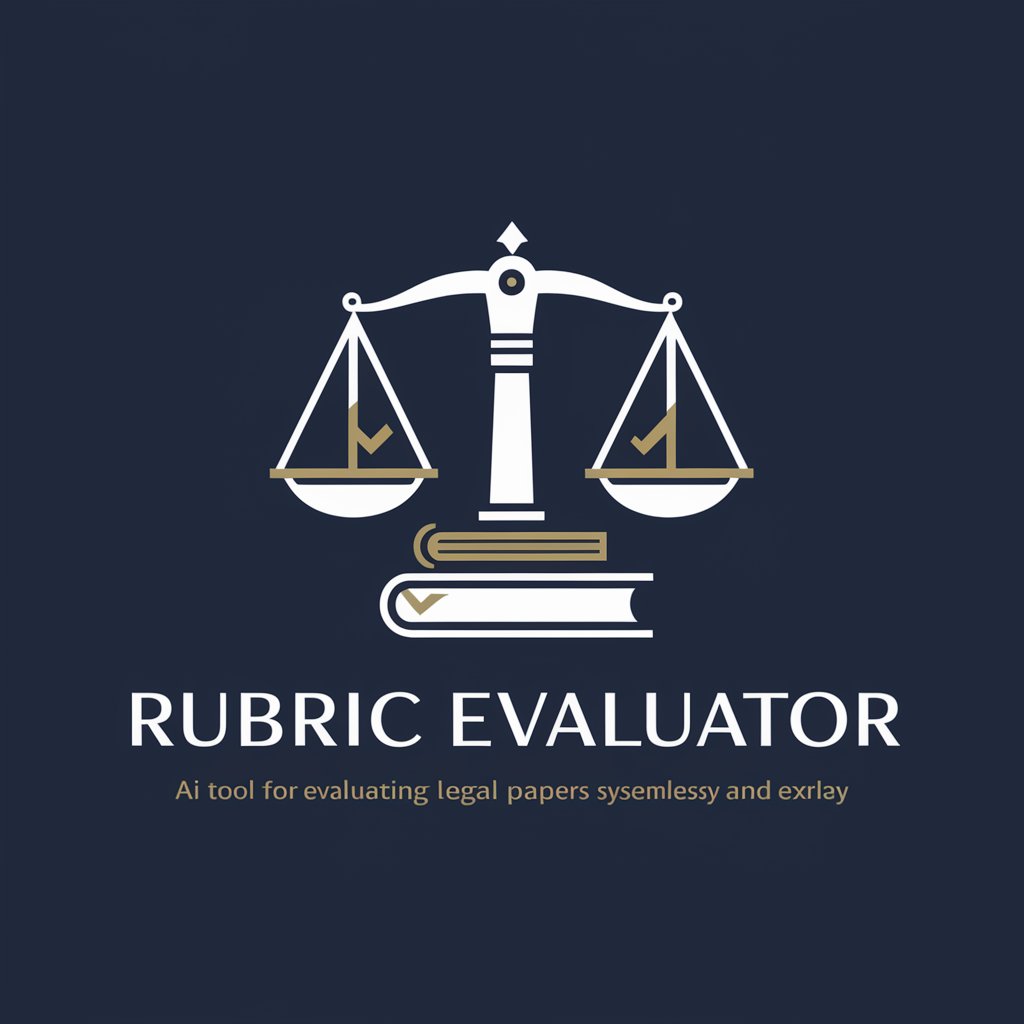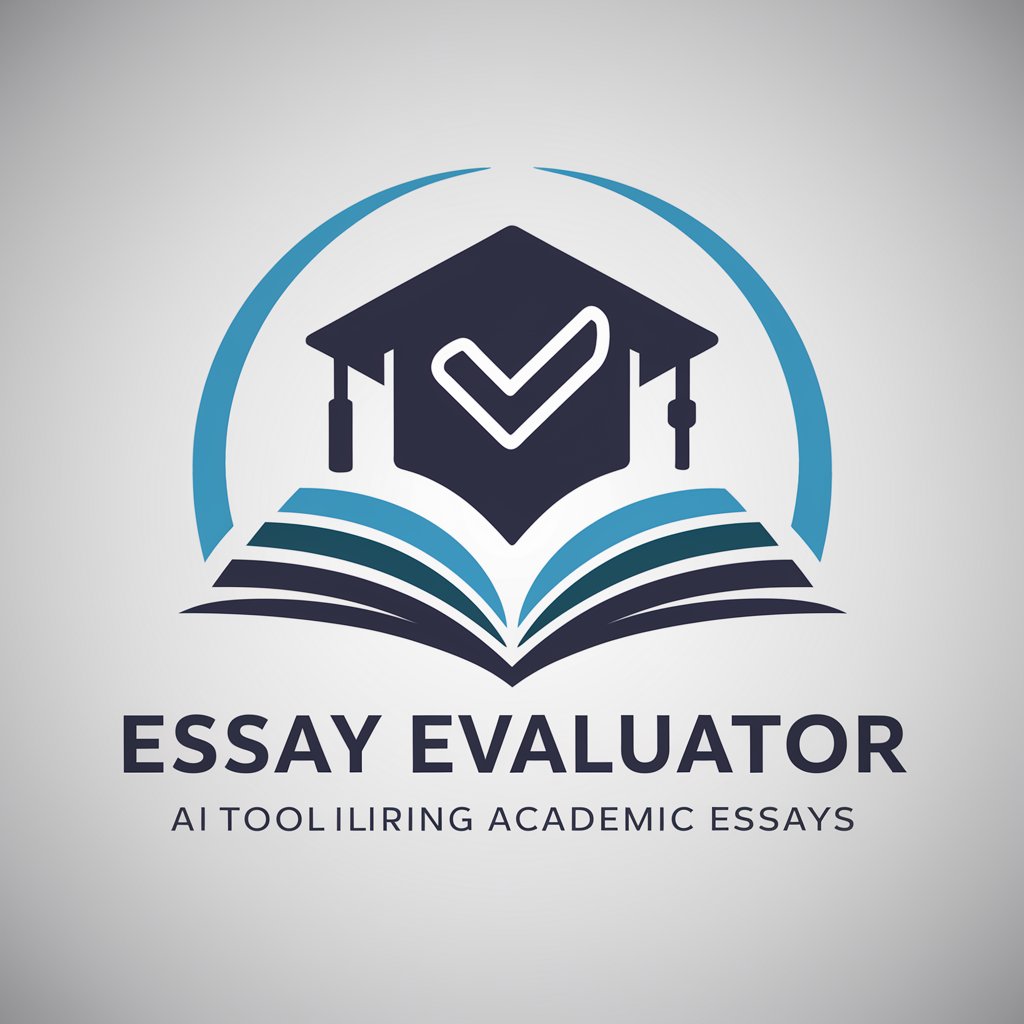
Rubric Evaluator - Legal Paper Evaluation

Welcome to Rubric Evaluator, your guide to fair and thorough legal paper assessments.
Empowering Legal Analysis with AI
Evaluate the legal reasoning in this case study focusing on...
Analyze the logical structure of the arguments presented in...
Assess the writing proficiency and clarity in this legal paper...
Review the application of relevant statutes and case law in...
Get Embed Code
Introduction to Rubric Evaluator
Rubric Evaluator is designed to systematically evaluate legal papers using a specified rubric, ensuring a fair and comprehensive assessment of legal analytical skills and writing proficiency. The core functionality centers around analyzing submissions based on criteria such as clarity, argumentation, legal reasoning, use of precedent, and writing structure. For example, in a scenario where a law student submits a paper analyzing a complex case, Rubric Evaluator assesses the paper's logical structuring, the coherence of its arguments, its adherence to legal precedents, and the proficiency of its legal writing. This process involves breaking down the main legal issue into coherent subtopics, evaluating the logical flow of the paper, and providing detailed feedback for improvement. Powered by ChatGPT-4o。

Main Functions of Rubric Evaluator
Topic Breakdown Evaluation
Example
Assessing how a paper divides the case of 'Brown v. Board of Education' into themes like historical context, legal arguments, and societal impact.
Scenario
In an educational setting, where a student's paper needs to dissect complex legal issues into understandable components.
Logical Structuring Assessment
Example
Evaluating the organization of a thesis on 'The Evolution of Digital Copyright Laws', ensuring ideas flow in a persuasive, coherent order.
Scenario
When a legal researcher submits their work for publication, requiring a structured argumentation flow.
Argument and Legal Reasoning
Example
Critiquing the use of specific case law in a paper arguing for changes in immigration policy, focusing on clarity and relevance of legal precedents.
Scenario
In a policy advocacy group, reviewing position papers for submission to a legislative body.
Writing Proficiency
Example
Checking a legal brief for grammar, punctuation, and the use of proper legal terminology before it is submitted to a court.
Scenario
A law firm preparing a brief for a high-profile case, ensuring the document meets professional standards.
Referencing
Example
Verifying that all references in a journal article on 'Intellectual Property in the Age of AI' are correctly cited according to legal citation guidelines.
Scenario
An academic journal editor ensuring submissions meet scholarly standards for publication.
Ideal Users of Rubric Evaluator Services
Law Students
Students working on legal writing assignments, moot court briefs, or preparing for law review submissions. They benefit from structured feedback to enhance their legal analysis and writing skills.
Legal Educators
Professors and tutors who require a systematic tool to provide consistent, detailed evaluations of student work, saving time while improving educational outcomes.
Legal Practitioners
Lawyers and legal researchers looking for a tool to refine their legal documents before submission to courts, journals, or policy discussions, ensuring clarity and precision in their arguments.
Legal Policy Analysts
Individuals working in think tanks, NGOs, or legislative analysis who need to evaluate the strength and coherence of legal arguments in policy papers or advocacy documents.

How to Use Rubric Evaluator
Start Free Trial
Access yeschat.ai to begin your free trial instantly without any need for login or subscription to ChatGPT Plus.
Choose Proficiency Level
Select the proficiency level of the legal case you are evaluating (Beginner, Intermediate, Advanced) to match the user's skill level.
Review Submission
Carefully read the submitted legal paper or analysis, understanding its arguments, legal reasoning, and structure.
Evaluate Using Rubric
Assess the submission based on the specified rubric criteria including clarity, argumentation, legal reasoning, and writing proficiency.
Provide Feedback
Score the submission according to the rubric and offer detailed, constructive feedback on each evaluated section.
Try other advanced and practical GPTs
Fake A Frown meaning?
Empowering Inquiries with AI Insight

Skye
Skye: Your AI-Powered Conversational Companion

PHYS 181 Syllabus Q/A bot
Navigate Your Syllabus with AI Ease

Meme Buddy
Craft Memes with AI Ease

Slovenski Lektor
Enhance Your Slovenian Texts with AI

SocialPost : Optimizador de Redes Sociales
Empower Your Posts with AI

$1M Advice
Empowering Your Path to $1M with AI

Mischief Mate
Crafting Mischief with AI Wit

Dating Advice GPT
Empowering your dating journey with AI

Paradox Puzzler
Stimulate Your Mind with AI-Crafted Paradoxes

Legal Guide
Empowering Legal Understanding with AI

Agente CV-Optimax
Empowering your career with AI-driven insights.

Frequently Asked Questions About Rubric Evaluator
What is Rubric Evaluator?
Rubric Evaluator is a specialized tool designed to systematically evaluate legal papers using a detailed rubric, focusing on legal analytical skills and writing proficiency.
Who can use Rubric Evaluator?
It's ideal for educators, legal professionals, and students who need to assess or improve legal writing and analytical skills in an educational or professional context.
Can Rubric Evaluator handle different areas of law?
Yes, Rubric Evaluator can adapt to various legal subjects by aligning with the specific rubrics and criteria relevant to each legal area.
How does Rubric Evaluator improve legal writing?
By providing structured feedback based on clear criteria, Rubric Evaluator helps users identify strengths and areas for improvement in their legal writing and reasoning.
Is Rubric Evaluator user-friendly for those new to legal studies?
Absolutely, the tool is designed with an intuitive interface and clear guidelines, making it accessible for users at all levels of legal proficiency.





